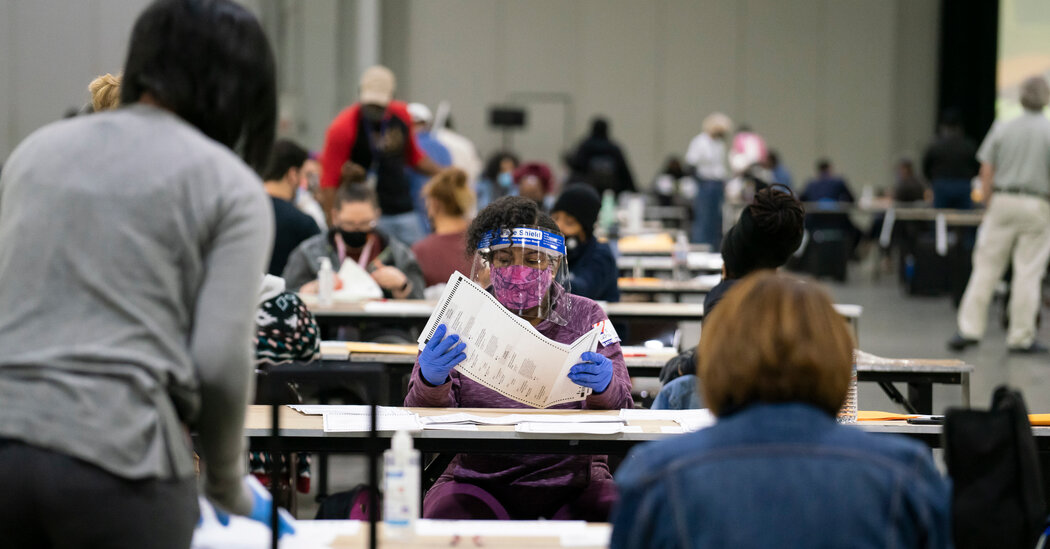Georgia Officials Reveal Third Trump Call Seeking to Influence Election Results

Earlier in December, Mr. Trump made a third call, this one to Gov. Brian Kemp, urging him to convene a special session of the Georgia legislature in hopes that lawmakers would overturn the election results.
Mr. Kemp and Mr. Raffensperger have rejected all of Mr. Trump’s efforts to get them to help him overturn the election results, even though both are conservative Republicans and Trump supporters. Mr. Trump has publicly attacked both men, spreading a baseless conspiracy theory about Mr. Raffensperger’s brother and promising that he would back a candidate in the Republican primary to challenge Mr. Kemp, who is up for re-election next year.
In a television interview on Monday, Mr. Raffensperger was asked if his office would open an investigation into the president’s phone call with him. He replied that because he had been on the Jan. 2 call, he might have a conflict of interest and suggested instead that such an investigation might be in the works by the Fulton County district attorney, Fani Willis.
Last week, a spokesman for Ms. Willis said that no investigation had been opened. But Ms. Willis, in a statement released last week, did not rule out the possibility, and called the news of the president’s call to Mr. Raffensperger “disturbing.”
The U.S. attorney in Atlanta faced similar pressure related to false claims of election fraud.
Shortly before the U.S. attorney, Byung J. Pak, abruptly resigned on Monday, the acting deputy attorney general, Richard Donoghue, relayed Mr. Trump’s dissatisfaction with his efforts to investigate false claims of mass voter fraud in his district, according to two people familiar with the matter who spoke on the condition of anonymity to disclose details of the phone call.
A Justice Department spokesman declined to comment.
Mr. Pak was also upset when he discovered that Mr. Trump had criticized him during his phone call last Saturday with Mr. Raffensperger.
While Mr. Trump did not call out Mr. Pak by name, he falsely claimed that not enough had been done to uncover mass voter fraud in Fulton County, where Atlanta is. He added, “You have your never-Trumper U.S. attorney there.”
*** This article has been archived for your research. The original version from The New York Times can be found here ***


